
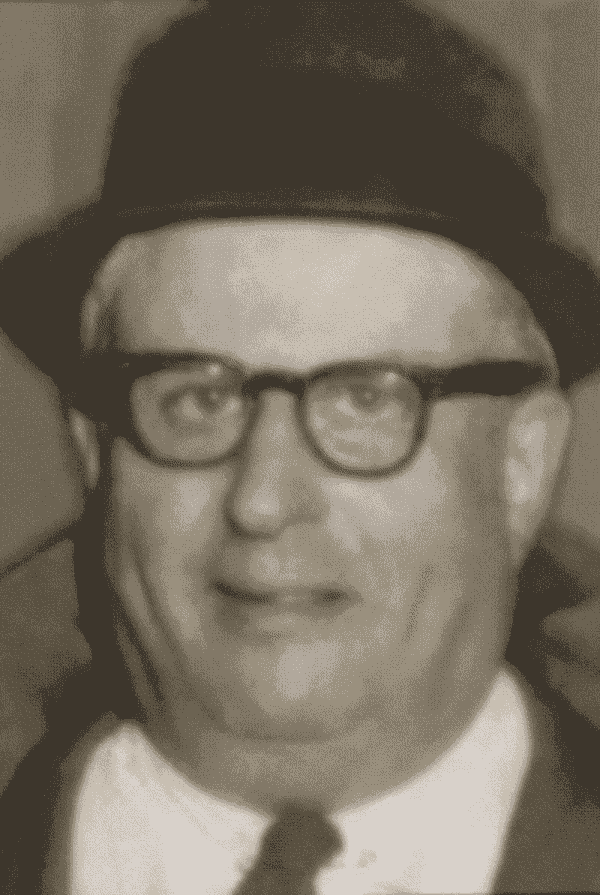
Liebling
In January 1961, William “Action” Jackson made a surprise visit to the home of Chicago restaurant owner Bernard Liebling. Jackson, a 300-pound leg breaker, was the city’s most notorious debt collector. Fifty-three-year-old Liebling owed three of the city’s most influential mobsters a large gambling debt, and they were tired of waiting.
Money lending companies, affiliated with the Chicago organized crime family known as the Outfit, offered high-interest loans to gamblers and individuals with poor credit, charging upwards of 20 percent a year per loan. They paid thugs like Jackson a weekly fee plus a fat commission to collect delinquent loans.
Liebling owed $32,000 to Leslie Kruse and John Drew and another $3,000 to Sam Lewis.[1] Kruse was an upper-echelon Outfit leader overseeing gambling rackets in Chicago’s north suburbs. Drew was the Outfit representative at Las Vegas’ Stardust Casino, while Lewis operated lending company Parr Finance and was an inducted Mafia member.[2]
Jackson made sure to call on Liebling’s residence when he was out. He confronted Liebling’s wife and child, threatening them with “bodily harm if he did not ‘pay up.’”
Liebling was outraged that the Outfit permitted Jackson to threaten his family. Jackson had a reputation for hurting people and reportedly raped the wife of one debtor who fell behind in payments. Liebling was a businessman on the organization’s periphery - not a violent gangster. Liebling immediately contacted the Federal Bureau of Investigation and told them he wanted to talk.[3]
(Shortly afterward, Outfit members killed Jackson, suspecting he gave up information about their moneylending operations. They hung him up on a meat hook and tortured him with a cattle prod over three days. Authorities found his body stuffed inside a car trunk.)
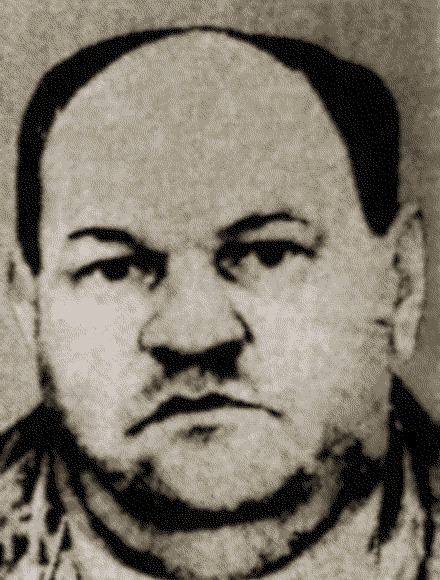
Jackson
Liebling’s phone call opened up new avenues of investigation for the FBI. Although never more than a bit player in a gambling operation, he associated with countless mobsters, including Louis Arger, a relative of Outfit lieutenant Gus Alex, and was a confidant to Leslie Kruse.
Motivated and intelligent, the FBI regarded Liebling as an “extremely valuable informant.”[4] He was especially good at exposing the Outfit’s penetration into legitimate businesses when the FBI had a patchy understanding of the organization. Liebling furnished the bulk of the available Intel between 1961 and 1964. However, intelligence reports reveal he was in contact with federal agents until at least 1971.[5]
The FBI assigned Liebling informant symbol code “CG 6443.” His initial FBI handlers were Special Agents Joseph G. Shea and William A. Meincke. As was customary for valuable informers, the FBI likely put him on the payroll.[6]
Bernard “Benjamin” Liebling was born in Chicago, Illinois, on January 10, 1908. He was the son of Louis and Fanny Liebling, two Jewish immigrants from Austria. Louis and Fanny came to the United States separately as teenagers in the 1890s. They married in Chicago and had six children.
Liebling did three years of college before enlisting in the United States Armed Forces during the Second World War. He served for three years before being discharged honorably in 1945.[7] After the war, Liebling married a woman from Mississippi and had a son.
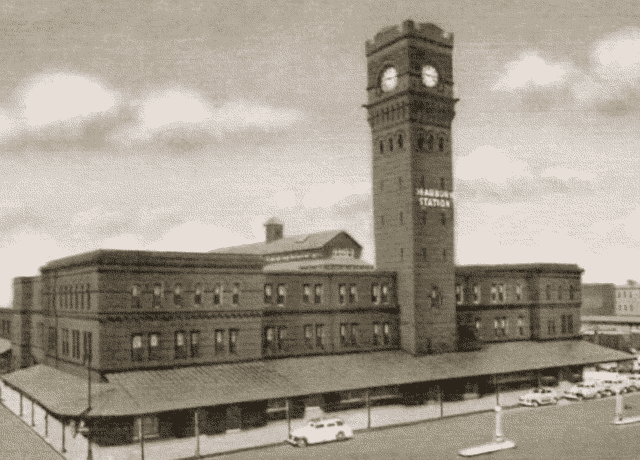
Dearborn Station
Bernard’s father Louis owned the Terminal Restaurant at 746 South Dearborn Street, located in Chicago’s political and commercial heart. The restaurant, operating since the 1920s, was across the street from the Dearborn Station, a busy intercity train station that ran for over eighty years before closing in 1971.
Liebling worked for the Outfit when he was not at the restaurant. For example, he collected payoffs from strip clubs on South State street on behalf of Gus Alex.[8] Strip club owners paid $300 a month to the organization to operate free of police harassment. Liebling delivered the money to Pat Marcy, the secretary for First Ward Alderman John D’Arco. The FBI identified Marcy and D’Arco as Mafia members.
Liebling also worked as a money counter at J and J Picnic Grove in Will County, southwest of Chicago.[9] The grove was a large gambling joint secretly owned by Sam Giancana, Gus Alex, Leslie Kruse, and others.
It's unclear when Liebling became more than a gambling client of the organization. In 1957, he turned down an offer from Alex to take over the First Ward gambling operations of Louis Tornabene, a subordinate who had fallen into disfavor.[10]
The formal relationship likely began in 1961 to settle his gambling debt. The FBI may have encouraged Liebling to take that step as a way to acquire more confidential information.
Liebling died in 1978 at the age of seventy. He was interred beside his wife at Rose Lawn Cemetery in Sebastian County, Arkansas.

FBI's Meincke
The FBI’s Chicago office pioneered the use of intelligence-gathering listening devices against the Mafia. The microphones, hidden in mob meeting places, recorded Outfit leaders openly discussing the organization’s criminal activities and history like never before. These secret recordings, which went on for years, formed the basis of the FBI’s early knowledge of the organization. However, developing an Outfit member willing to give up secrets proved challenging, and Chicago was one of the last crime families to produce a member-informant.
As a result, cooperating associates like Bernard Liebling helped fill in the knowledge gaps. Liebling furnished so much Intel that it’s impossible to present all of it. The volume of Intel attributed to Liebling’s informant symbol code “CG 6443” was so great, compared to other live sources of the era, that a reader of the intelligence reports might believe they were compiled from an FBI listening device, rather than a person.
Liebling was not Italian and could not become a Mafia member. So he did not provide information about the Mafia or its membership and rituals. Moreover, he did not use Italian terminology like “caporegime,” “La Cosa Nostra,” or even “Mafia” to describe the organization.
Instead, Liebling referred to the “Outfit,” the multiethnic criminal organization that controlled Chicago rackets like gambling and loansharking using political and law enforcement contacts.
He used terms like “district supervisor,” “overall board of directors,” or “first lieutenant” to describe the underworld power structure.[11] It’s unclear if he knew the difference between an Outfit member and a Mafia member in the Chicago context.
When Liebling debriefed with federal agents in 1961, he furnished contradictory and confusing Intel about the organization’s hierarchy. Initially, Liebling advised Anthony Accardo and Sam Giancana were the “top guys” in the “Outfit.”[12] He figured Giancana would take over as boss if Accardo, facing a tax evasion trial, went to prison. Sam Battaglia was next in power, followed by Felix Alderisio, who Liebling advised was “becoming more powerful every day.” He considered Ross Prio the “next person in line,” followed by Frank Ferraro and Joseph DiVarco. He stated Ferraro was Gus Alex’s “right-hand man and equal partner.” Liebling’s disclosures largely matched Intel, previously acquired from listening devices.[13]
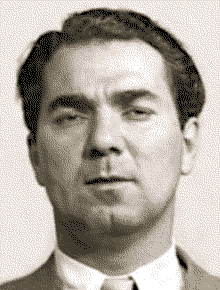
Alderisio
As late as 1957, the FBI described Alderisio as a “minor hoodlum” or merely a “muscle man.”
Liebling’s description of Alderisio as a rising power led the FBI to reevaluate his importance.[14]
A few months later, though, Liebling gave a different hierarchy breakdown. He stated that Gus Alex was “unquestionably” the top man, followed by “elder statesman” Murray Humphreys. He said Sam Giancana was “almost on equal par” with Alex. He called them the “big three.”
Below them were Frank Ferraro, who worked closely with Gus Alex, and Louis Briatta and Pat Marcy, who handled criminal activities in the Chicago’s Loop area. (Liebling may have provided what he believed was an accurate description of the power structure in the Loop, not the overall organization, and federal agents misinterpreted him.)
Liebling later corrected his confusion about the organization’s power structure and accurately stated that Sam Giancana was the leader under the influence of Anthony Accardo and Paul Ricca.[15]
Liebling’s inconsistent statements highlighted the danger faced by federal agents relying strictly on one source. Sources often gave misleading information despite their best intentions, making accurate assessments hard.
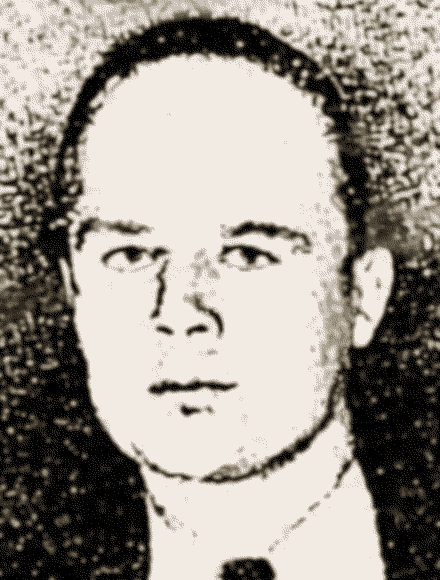
Kruse
Liebling’s primary underworld contact was Leslie Kruse. Kruse was known as “Killer Kane,” although Kruse claimed his violent reputation was unearned. He came up under Jake Guzik, Al Capone’s moneyman and political corrupter. Kruse was a gambling genius and was the Outfit’s go-to when investing in casinos in the United States or the Caribbean.[16]
At times, Liebling was Kruse’s driver, which put him in daily contact.[17] Chauffeurs frequently act as sounding boards for their bosses. Kruse used him to discuss various Outfit ventures, complain about other mobsters, and blow off steam. Liebling kept his mouth shut and ears open and reported back to the FBI.
Kruse told him that the FBI’s investigation into his gambling operations had cost him a “small fortune.” As a result, he laid off most of his employees, many of whom had been with him for twenty years.
Liebling revealed hard feelings developed between Kruse and Rocco Fischetti shortly before Fischetti’s death in July 1964. Fischetti, and his two brothers, Charles and Joseph, were longtime Outfit members going back to the Capone era. Kruse and Rocco Fischetti had been business associates and shared financial interest in J and J Picnic Grove, the gambling club where Liebling worked.
However, they fell out after Fischetti withheld Kruse’s portion of gambling money confiscated during a police raid but later returned by authorities.[18] They nearly came to blows after Fischetti threw his weight around at a dinner party attended by Ralph Pierce. Kruse refused to go along and told Fischetti that “he was not taking orders from him and was not taking any of his guff.” The relationship deteriorated so thoroughly that Kruse spat on the ground at the mention of his name. He refused to attend Fischetti’s funeral in New York State because “it costs money.” Fischetti died owing “vast sums of money” to Sam Giancana, John Drew, Pierce, and Kruse.[19]
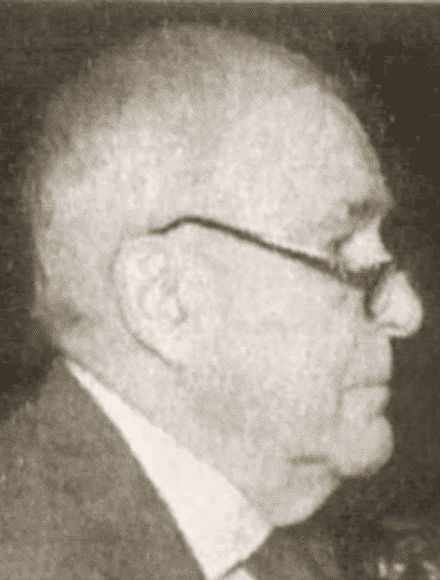
Gus Alex
Liebling had a generally unfavorable opinion of Gus Alex, although he recognized his underworld abilities. Alex came up under Capone-era gangster Jake Guzik, working as his chauffeur. Liebling said Anthony Accardo had “great respect” for Alex.[20] Guzik died in 1956, but Alex had surpassed Guzik in power while he was alive. According to Liebling, Alex “let Guzik take the honours because Guzik was an old man.”[21] He recalled that Alex threatened Guzik’s brothers with death if they did not share their criminal profits with the organization.
He called Alex “one of the most cold-blooded and most vicious persons he has ever known.”[22] Alex’s brother Sam was “an animal and perhaps more vicious than Gus.” According to Liebling, Sam and Gus avoided going out together in public because Gus wanted one of the brothers alive to seek revenge if the other brother was murdered.
Liebling called Alex a “user of persons.”[23] For example, Alex and Outfit member Louis Tornabene used to be close friends until Alex dropped him. Liebling said Tornabene “suffered some reverses.” Now Alex considered him “inferior.” As a result, Alex feared Tornabene might talk about him. Alex wanted Liebling to replace him.
Liebling told federal agents about the trouble Alex had turning a profit in the entertainment field. Negative publicity generated by unflattering newspaper articles had forced law enforcement to close many Outfit-controlled strip clubs in the city. The strip clubs had generated enormous profits for the organization. The owners paid Alex 50 percent of their proceeds to operate in peace.[24] In turn, he split his share with Sam Giancana.[25]
Tornabene complained that cops did nothing to prevent the closures despite being bribed to look the other way. As a result, Alex stood to lose over $120,000 yearly. Tornabene told Liebling that “wouldn’t you know the lousy cops made all the money.”[26]
Criminal enterprises cannot operate on a grand scale without the connivance of law enforcement. Corrupting police officials through bribes and favors, making them partners, and persuading them to turn a blind eye, was an ongoing costly part of doing business.
Liebling estimated Leslie Kruse paid half a million dollars in bribes to Chicago Police Department members over the last eight years to ensure gambling operations in one neighborhood prospered. Liebling identified ten high-ranking police officials, including a former deputy police commissioner, who allegedly received fixed payoffs every month to look the other way. Outfit “bagmen” delivered envelopes of money to select drop-offs at certain restaurants.[27]
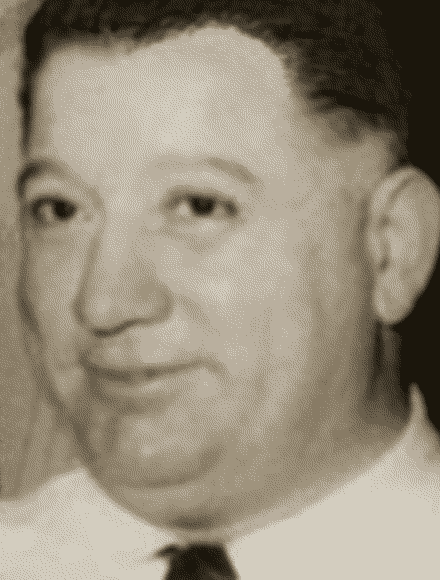
Tuffanelli
Gambling was the Outfit’s biggest moneymaking racket. Dice games, card games and sports betting generated huge profits, and most prominent mobsters had a piece of the action. The betting took place at taverns, strip clubs, factories and places of business. Liebling broke down how the Outfit carved up the city and assigned mobsters to oversee the gambling activities in each territory.
For example, Frank Caruso managed the territory around Twenty-sixth Street and Wentworth Avenue West. Caruso reported to Ralph Pierce. Frank Laporte and Babe Tuffanelli supervised the Calumet area. Kruse and Laporte also controlled Joliet, Illinois, replacing old boss Francis Curry who was now a “figurehead.”
Felix Alderisio supervised gambling in Chicago’s Diversey District with the assistance of Sam Lewis and Leonard Gianola. Albert Frabotta acted as a “triggerman” for him. Ross Prio controlled Chicago’s Near Northside with his lieutenant Joseph DiVarco. Joseph Gagliano supervised the area west of Damen Avenue and north of Chicago Avenue.[28]
Gambling and moneylending went hand in hand. If a gambler ran out of money, the organization was there on the spot with cash available to lend. The most common loan arrangement was a "juice loan" or "6/5 loan." In this instance, a lender charged interest of 20 percent per week until the borrower repaid the principal. On a loan of $500, for example, the borrower would pay $100 weekly in interest until paying back the $500 plus one week's interest in one lump-sum payment.
The organization also offered high-interest loans through moneylending firms for businessmen and gamblers who, because of poor credit, couldn’t get loans from traditional sources like banks. Liebling, an inveterate gambler, found himself in debt to the Outfit this way.
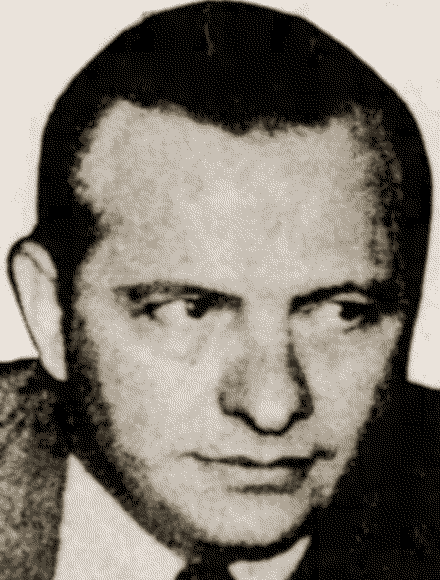
William Parrillo
Liebling provided insight into the rise of the moneylending operations of one politically connected family.[29] William J. Parrillo was a former assistant U.S. attorney in Illinois while also serving the interests of Chicago's underworld. Liebling stated Parrillo was a “fixer” for Al Capone and allegedly used his legal skills and political influence to help Paul Ricca, Anthony Accardo, Sam Giancana and Sam Lewis.
At his January, 1952, death, Parrillo left an estate worth millions along with a moneylending operation called the Parrillo Loan Company, also known as Parr Finance. His son Donald Parrillo served as president of the company and had a successful local political career as an alderman in Chicago’s First Ward. (Donald Parrillo wrote about his father's underworld connections in the 2009 book, Capone May Go Free.)
William Parrillo’s alleged former partner in Parr Finance was Sam Lewis. The FBI identified Lewis, real name Sam Luzi, as a Mafia member. Lewis was a former member of the “Forty Two Gang,” a youth gang that spawned hoodlums Sam Giancana and Willian Daddano. According to Liebling, Lewis was a “vicious” individual responsible for handling loans with the hoodlum element. (Until his murder, William "Action" Jackson worked as a collector for Parr Finance.)
According to Liebling, Murray Humphreys had the “last word” regarding union matters in Chicago.[30] Humphreys set Outfit union policy and was the primary contact with union leaders. (Union organizer and Outfit associate Fred Smith corroborated Liebling’s statement when he secretly debriefed with federal agents in 1964.)[31]
For example, Liebling stated Humphreys directly controlled Gus Zappas, the business manager for the Laundry Workers Union. Humphreys supported Zappas, and in return, the Laundry Workers Union implemented labor policies beneficial to Outfit members. Liebling added that the Outfit had enough influence to replace the head of the Bartenders Union in Chicago after he failed to do their bidding.
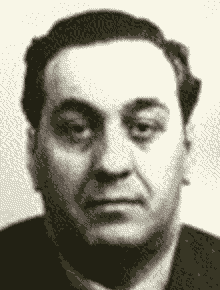
Accardo
The Outfit parlayed profits from criminal activities into legitimate businesses. For example, members often acquired an ownership position after a businessman could not repay a gambling or business loan. However, authorities had difficulty tracking the investments because the organization often used “legitimate” individuals as “fronts” to shield their ownership. The undisclosed investments allowed Outfit members to hide their wealth and minimize taxes but made them vulnerable to prosecution by the Internal Revenue Service.
Liebling provided many examples such as:
Outfit members made so much money that they had to find ways to invest it without drawing attention from government agencies. They usually took the advice of accountants and lawyers and hid their ill-gotten money in legitimate businesses in the names of trusted people. Kruse told Liebling the organization often hid the actual ownership in the names of their wives, in-laws, and friends.[35]
This strategy allowed mobsters to launder their money in the real economy instead of keeping it buried in their backyards. However, it presented a different problem when an individual died unexpectedly without taking account of his assets.
Liebling recounted that deceased mobsters Frank Nitti and Louis Campagna hid their wealth so thoroughly from law enforcement that the organization could not locate all their investments after they died. In one case, the Outfit allegedly discovered that Louis Greenberg, one of those trusted people meant to safeguard the assets, had kept Nitti’s undisclosed interest in a brewery for himself instead of returning it to the organization. As punishment, the Outfit killed Greenberg.[36]
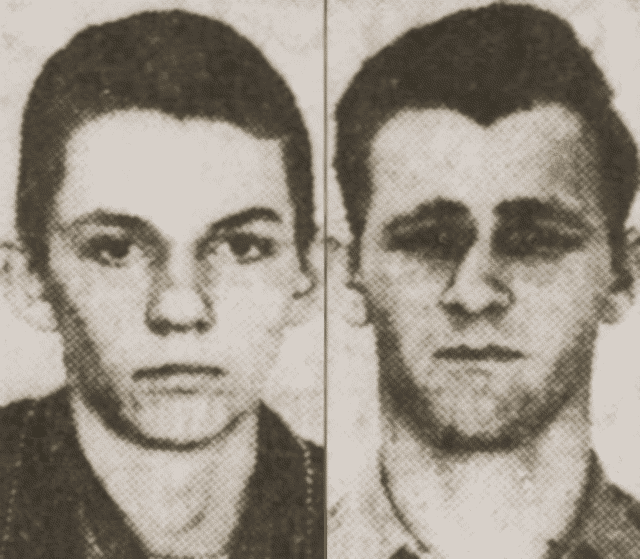
Siever (l) and Watts
In 1957, federal agents arrested twenty-five-year-old Donald C. Watts and seventeen-year-old William W. Siever for attempting to extort ten thousand dollars from Bernard Liebling.[47] Liebling parked his vehicle at Watts’s garage and may have scammed him out of money. Watts threatened Liebling with death if he contacted the police or didn't pay. Instead, he went to the FBI.
Leslie Kruse told Liebling that the organization believed “the ‘G’ must have an ‘Outfit’ guy as an informant” because the FBI possessed “very accurate” information about its operations.[37] Kruse suspected Outfit members Frank Ferraro, Louis Briatta and John D’Arco could be talking to the FBI. Ferraro was a highly regarded individual and was in line to succeed boss Sam Giancana when he stepped down.
Kruse stated the organization considered Ferraro “weak.” “This is the beginning of the end for the rackets. Everybody is a stool pigeon, even our own guys are leaking the information, and the FBI is overzealous. Everything is locked up.”
It’s hard to know how much weight to give Kruse’s remarks since he did not elaborate. Ferraro died soon afterward, but his wake and funeral were well-attended by Chicago's underworld. Briatta and D'Arco continued to function within the organization for years.
As it turned out, Kruse was right to be worried. Not because a prominent member rolled over, but because the FBI had installed secret listening devices in Outfit meeting places that produced volumes of incriminating information.
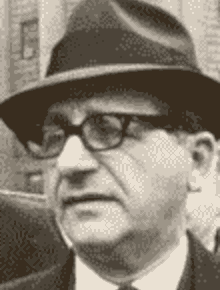
Giancana
In many ways, Bernard Liebling was an unlikely top informant. A man more familiar with a restaurant kitchen than a Mafia backroom, he was a well-educated family man saddled with a gambling habit. But, threatened by the Outfit, he retaliated by cooperating with the FBI while working for the organization.
Liebling did have blindspots about the Outfit's power dynamics, but there may have been no better supplier of Intel regarding the organization's penetration into legitimate businesses during the early 1960s.
1 FBI, Samuel M. Giancana, Chicago Office, April 20, 1961, NARA Record No. 124-10293-10197.
2 FBI, Gus Alex, Chicago Office, August 23, 1961, NARA Record No. 124-10205-10052. Liebling repaid John Drew $7,000 in August 1961. According to Leslie Kruse, Drew had a gambling habit and borrowed a large sum from Sam Giancana.
3 Liebling’s brother Herman died in 1960 at sixty-one, before he cooperated. A traumatic, life-changing event can affect an individual’s state of mind and lead to significant change.
4 FBI, Gus Alex, Chicago Office, September 28, 1961, NARA Record No. 124-10209-10008.
5 FBI, Louis Tornabene, Chicago Office, January 31, 1972, NARA Record No. 124-10196-10358.
6 Liebling had a financial incentive to cooperate. However, it’s unclear if the FBI directly helped him repay his Outfit debt with a lump sum payment.
7 “United States World War II Army Enlistment Records, 1938-1946,” database, FamilySearch.
8 FBI, Gus Alex, Chicago Office, November 25, 1961, NARA Record No. 124-10209-10059.
9 FBI, Samuel M. Giancana, Chicago Office, July 29, 1961, NARA Record No. 124-10298-10202.
10 FBI, Gus Alex, Chicago Office, October 27, 1961, NARA Record No. 124-10209-10032.
11 It’s unclear if Liebling directly employed those terms to describe the organization’s hierarchy or if the FBI attributed them to him.
12 FBI, Gus Alex, Chicago Office, March 24, 1961, NARA Record No. 124-10199-10127. Giancana had become operating boss circa 1957.
13 FBI, Gus Alex, Chicago Office, June 30, 1961, NARA Record No. 124-10205-10017.
14 FBI, Samuel M. Giancana, Chicago Office, September 27, 1957, NARA Record No. 124-10223-10487.
15 FBI, Samuel M. Giancana, Chicago Office, April 2, 1971, NARA Record No. 124-10201-10196.
16 FBI, Leslie Earl Kruse, Chicago Office, September 19, 1963, NARA Record No. 124-90086-10265.
17 FBI, Samuel M. Giancana, Chicago Office, August 14, 1963, NARA Record No. 124-90024-10017.
18 FBI, Leslie Earl Kruse, Chicago Office, November 17, 1964, 92-5505-261. Authorities returned $86,000 to Fischetti after the courts determined the police illegally confiscated the funds in a gambling raid.
19 FBI, Gus Alex, Chicago Office, March 10, 1961, NARA Record No. 124-10199-10112.
20 FBI, Gus Alex, Chicago Office, September 21, 1961, NARA Record No. 124-10209-10000.
21 FBI, Gus Alex, Chicago Office, April 14, 1961, NARA Record No. 124-10199-10142.
22 FBI, Gus Alex, Chicago Office, August 31, 1966, NARA Record No. 124-10209-10323.
23 FBI, Gus Alex, Chicago Office, November 16, 1964, NARA Record No. 124-10209-10250.
24 FBI, Activities of Top Hoodlums, Chicago Office, November 23, 1962, NARA Record No. 124-10199-10244.
25 FBI, Activities of Top Hoodlums, Chicago Office, March 15, 1963, NARA Record No. 124-10210-10028.
26 FBI, Gus Alex, Chicago Office, April 30, 1964, NARA Record No. 124-10209-10190.
27 FBI, Gus Alex, Chicago Office, May 18, 1961, NARA Record No. 124-10201-10074.
28 FBI, Gus Alex, Chicago Office, May 18, 1961, NARA Record No. 124-10201-10074.
29 FBI, Shylocking, Chicago Office, January 8, 1965, NARA Record No. 124-90059-10036.
30 FBI, Gus Alex, Chicago Office, September 21, 1961, NARA Record No. 124-10209-10000.
31 Edmond Valin, “Fred ‘Jukebox Smitty’ Smith: The Outfit’s most accomplished extortionist,” Rat Trap, January 2021
32 FBI, Samuel M. Giancana, Chicago Office, March 13, 1961, NARA Record No. 124-10290-10251.
33 FBI, Gus Alex, Chicago Office, March 10, 1961, NARA Record No. 124-10199-10112.
34 FBI, Samuel M. Giancana, Chicago Office, March 27, 1964, NARA Record No. 124-10195-10024.
35 FBI, Gus Alex, Chicago Office, June 12, 1961, NARA Record No. 124-10200-10073.
36 FBI, Gus Alex, Chicago Office, March 10, 1961, NARA Record No. 124-10199-10112.
37 FBI, Leslie Earl Kruse, Chicago Office, September 19, 1963, NARA Record No. 124-90086-10265.
38 FBI, Gus Alex, Chicago Office, March 10, 1961, NARA Record No. 124-10199-10112.
39 FBI, Criminal Intelligence Digest, Chicago Office, January 30, 1967, NARA Record No. 124-10198-10185.
40 FBI, Samuel M/ Giancana, Chicago Office, March 13, 1961, NARA Record No. 124-10290-10251.
41 FBI, Gus Alex, Chicago Office, October 17, 1961, NARA Record No. 124-10209-10022.
42 FBI, Samuel M. Giancana, Chicago Office, May 5, 1961, NARA Record No. 124-90024-10122; FBI, Samuel M. Giancana, Chicago Office, March 6, 1961, NARA Record No. 124-10290-10243.
43 FBI, Top Echelon Criminal Informant Program, Chicago Office, January 20, 1967, NARA Record No. 124-90059-10073.
44 FBI, Gus Alex, Chicago Office, March 24, 1961, NARA Record No. 124-10199-10127.
45 FBI, Joseph Stein, Chicago Office, December 17, 1965, NARA Record No. 124-90086-10117.
46 FBI, “CG 644,” Chicago Office, October 1, 1964, 92-689-132.
47 “Nab 2 in extort plot against Loop cafe man,” Chicago Tribune, Oct. 30, 1957. It seems unlikely that Liebling would have involved law enforcement if he viewed himself as an Outfit associate. If the incident was known to Leslie Kruse, it should have given him pause before sending William Jackson after Liebling.
48 FBI, Gus Alex, Chicago Office, January 31, 1961, NARA Record No. 124-10207-10160.
49 FBI, Samuel M. Giancana, Chicago Office, June 9, 1961, NARA Record No. 124-10226-10352.
50 FBI, Gus Alex, FBI Director, May 4, 1961, NARA Record No. 124-10199-10155.